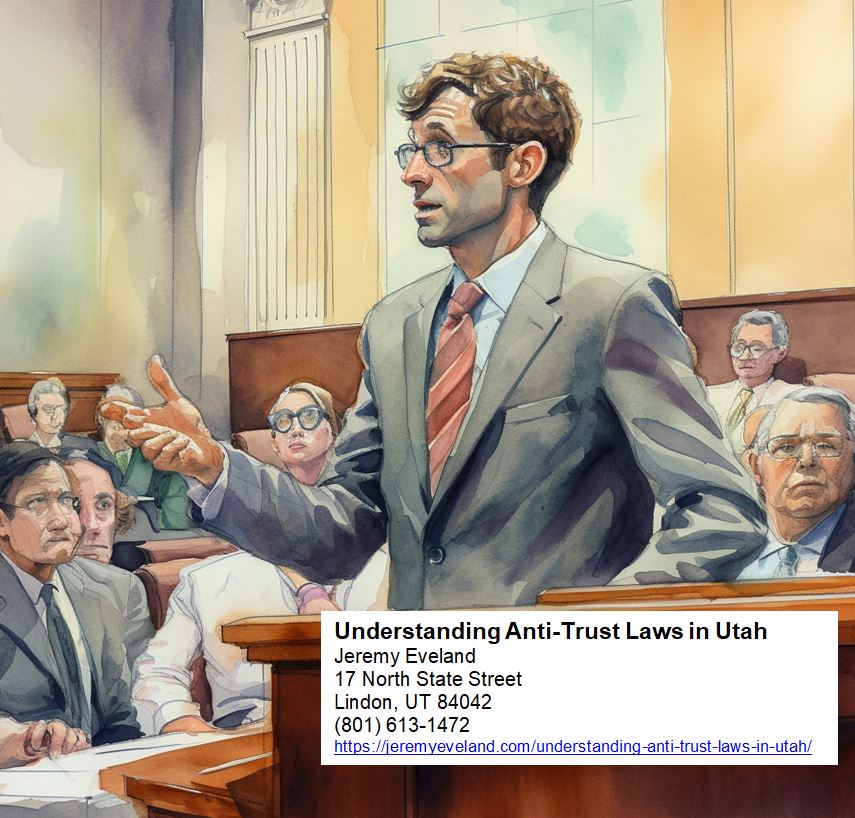Are you a business owner contemplating the end of your business journey? business dissolution can be a complex and emotional process, but it’s important to navigate it with careful consideration and a solid exit strategy. In this article, we will explore the key legal considerations and exit strategies that can help ensure a smooth and efficient transition. Whether you’re facing financial struggles, partnership disputes, or simply ready to retire, understanding these factors will empower you to make informed decisions and pave the way for a successful resolution. Let attorney Jeremy Eveland guide you through this crucial phase with expertise and personalized advice tailored to your unique circumstances. With his guidance, you can confidently embark on your next chapter and safeguard your interests.
Legal Considerations for Business Dissolution
Understanding Business Dissolution
When a business is dissolved, it means that it is being brought to an end or terminated. This can happen for a variety of reasons such as retirement, bankruptcy, or simply the desire to move on to other ventures. Understanding the process of business dissolution is essential to ensure a smooth and legally compliant closure of your business.
Types of Business Dissolution
There are different types of business dissolution, and the type you choose will depend on various factors such as the structure of your business and the reason for dissolution. Some common types include voluntary dissolution, involuntary dissolution, and dissolution by court order. It’s important to familiarize yourself with these different types to determine which one is applicable to your situation.
Importance of Legal Considerations
When dissolving a business, there are several legal considerations that need to be taken into account. Failing to address these considerations properly can lead to potential legal issues and liabilities. It is crucial to ensure that all legal requirements are fulfilled to protect yourself, your assets, and your reputation.
Seeking Legal Advice
Navigating the legal complexities of business dissolution can be challenging, and it is highly recommended to seek legal advice from an experienced attorney specializing in business law. An attorney can guide you through the process, ensure compliance with relevant laws and regulations, and help protect your interests throughout the dissolution process.
Role of Attorneys in Business Dissolution
Attorneys play a crucial role in business dissolution by providing legal expertise and guidance. They can assist with drafting and reviewing legal documents, ensuring compliance with state and federal laws, addressing any legal disputes that may arise, and representing your interests in court if necessary. Having a skilled attorney by your side can help you navigate the dissolution process with confidence.
Exit Strategies for Business Dissolution
What is an Exit Strategy?
An exit strategy is a plan to systematically wind down or exit your business while minimizing potential losses and maximizing your return on investment. It involves making strategic decisions about the future of your business, such as selling it, merging with another company, or transitioning it to a family member or employee.
Importance of Planning Your Exit Strategy
Planning your exit strategy in advance is important to ensure a smooth and successful transition. By carefully considering your options and taking proactive steps, you can minimize disruptions and uncertainties during the dissolution process. A well-thought-out exit strategy can also help you achieve your financial and personal goals while protecting your business’s legacy.
Common Exit Strategies for Business Owners
There are several common exit strategies that business owners can consider when planning for business dissolution. These include selling the business to a third party, liquidating assets and distributing proceeds, merging or acquiring other businesses, implementing succession planning to transition ownership within the family or to key employees, and establishing an Employee Stock Ownership Plan (ESOP). Each option has its own advantages and considerations, so it’s essential to evaluate which strategy aligns best with your goals.
Selling Your Business
Selling your business is a popular exit strategy that allows you to transfer ownership to a buyer in exchange for a monetary payment. This option can provide a return on your investment and allow you to exit the business while minimizing potential liabilities. It is important to properly value your business, engage in negotiations, and draft a comprehensive sales agreement with the assistance of an experienced attorney.
Liquidation and Distributing Assets
In some cases, liquidating assets and distributing the proceeds may be the best option for closing a business. This involves selling off assets such as inventory, equipment, or property, and using the proceeds to pay off any outstanding debts and obligations. Proper legal documentation and compliance with bankruptcy laws may be necessary in this process, making the guidance of an attorney crucial.
Merging or Acquiring Other Businesses
Merging or acquiring another business can be a strategic choice for business owners looking to exit while maximizing the value of their business. This option allows for the combination of resources, customer bases, and expertise to create a stronger and more competitive entity. However, navigating the legal and financial complexities of mergers and acquisitions requires the guidance of an attorney experienced in business transactions.
Succession Planning
Succession planning involves the transfer of ownership and management of a business to a chosen successor, whether it be a family member, key employee, or partner. By establishing a clear succession plan, you can ensure a smooth transition of leadership and continuity of the business. This process often involves legal considerations such as drafting buy-sell agreements, creating partnership agreements, and addressing tax implications. An attorney can provide guidance in developing and executing a successful succession plan.
Employee Stock Ownership Plans (ESOP)
An Employee Stock Ownership Plan (ESOP) is a unique exit strategy that allows business owners to sell their ownership to employees. This option can provide financial benefits to employees, while allowing the owner to exit the business and maintain its continuity. Establishing an ESOP involves complex legal and financial considerations, such as valuation, funding, and compliance with regulatory requirements. Engaging an attorney experienced in ESOP transactions is essential for a successful implementation.
Voluntary or Involuntary Dissolution
Voluntary dissolution occurs when the owners of a business decide to close it down willingly. It usually involves filing the necessary paperwork, settling debts, and distributing assets. In contrast, involuntary dissolution occurs when a business is forced to close due to legal action, bankruptcy, or failure to comply with legal obligations. Understanding the differences between these two types of dissolution is crucial for ensuring compliance with relevant laws and regulations.
Legal Requirements for Business Dissolution
Reviewing Business Contracts and Agreements
When dissolving a business, it is vital to review and address any existing contracts and agreements. This may include leases, supplier contracts, customer agreements, employment contracts, and partnership agreements. Properly terminating or transferring these contracts is crucial to avoid potential legal disputes and liabilities.
Notifying Creditors and Debtors
Properly notifying creditors and debtors about the business dissolution is an essential legal requirement. Informing them in a timely manner allows them to assert any claims or collect outstanding debts before the business is closed. Failing to notify creditors and debtors can lead to legal consequences, including potential lawsuits.
Fulfilling Tax Obligations
Dissolving a business involves fulfilling various tax obligations, including filing final tax returns, paying any outstanding taxes, and issuing tax forms to employees or contractors. Understanding and complying with federal, state, and local tax laws is crucial to avoid penalties or audits. Consulting with a tax professional or attorney can help ensure that all tax obligations are properly addressed.
Cancelling Licenses and Permits
When dissolving a business, it is important to cancel any licenses and permits that were obtained for its operation. This may include business licenses, professional licenses, permits related to specific industries or activities, and registrations with regulatory agencies. Failure to cancel these licenses and permits may result in unnecessary fees or legal complications.
Terminating Lease and Rental Agreements
If your business operates from leased or rented premises, you will need to properly terminate these agreements as part of the dissolution process. Reviewing the terms of the lease or rental agreement and following the prescribed termination procedures is essential to avoid potential legal disputes or financial liabilities. Seeking legal advice can help ensure that the termination is executed correctly.
Addressing Employee Matters
Dissolving a business involves addressing various employee matters, such as terminating employment contracts, finalizing employee benefits, and complying with employment laws and regulations. Properly communicating with employees, providing required notices, and fulfilling legal obligations related to their final pay and benefits is crucial to avoid potential legal claims or disputes.
Handling Intellectual Property Rights
protecting your intellectual property rights during business dissolution is of utmost importance. Intellectual property assets may include trademarks, copyrights, patents, trade secrets, or proprietary technology. Transferring or licensing these assets, registering trademarks or copyrights, and enforcing intellectual property rights should be carefully addressed during the dissolution process.
Resolving Disputes and Legal Claims
Dissolving a business may lead to legal disputes or claims from various parties, such as creditors, customers, employees, or business partners. Resolving these disputes through negotiation, settlement, or legal proceedings is essential to avoid prolonged litigation and potential financial liabilities. Engaging an attorney experienced in dispute resolution can help protect your interests and navigate the legal process effectively.
Complying with State and Federal Laws
Throughout the dissolution process, it is crucial to comply with applicable state and federal laws. These may include business laws, employment laws, tax laws, bankruptcy laws, and regulations specific to your industry. Staying informed about these laws and seeking legal advice can help ensure that your business dissolution is conducted legally and transparently.
Tax Implications of Business Dissolution
Understanding Tax Consequences
Dissolving a business can have significant tax implications that need to be carefully considered and planned for. It is essential to understand the potential tax consequences at the federal, state, and local levels and ensure compliance with all tax laws and regulations.
Liquidating Assets and Capital Gains Tax
When liquidating assets as part of a business dissolution, capital gains tax may be applicable. Capital gains tax is levied on the profits made from the sale or disposal of assets. Understanding the tax rules surrounding capital gains and consulting with a tax professional can help minimize tax liabilities and ensure proper reporting.
Treatment of Business Debts and Write-offs
Dealing with business debts and write-offs is an important tax consideration in the dissolution process. It is necessary to understand the tax treatment of these debts and any potential deductions or write-offs that may be available. This involves reviewing business records, consulting with a tax professional, and ensuring compliance with tax regulations.
Employee Tax Considerations
When a business is dissolved, there are tax considerations related to employees that need to be addressed. These can include finalizing payroll and withholding taxes, issuing final W-2 forms to employees, and addressing any employee-related tax obligations. Consulting with a tax professional or employment attorney can help ensure compliance with these tax requirements.
Reporting Business Dissolution to IRS
Properly reporting the business dissolution to the Internal Revenue Service (IRS) is a crucial tax requirement. This involves filing the appropriate tax forms, such as the final income tax return for the business, informational tax forms for employees, and any other required documentation. An attorney or tax professional can guide you through the process and help ensure accurate reporting.
Engaging a Tax Professional
Given the complexity of tax implications in business dissolution, it is highly recommended to engage a tax professional with expertise in business taxes. They can provide guidance on tax planning, help minimize tax liabilities, ensure compliance with tax laws, and assist with accurate reporting to the IRS and other tax authorities.
Protecting Personal Liability in Business Dissolution
Understanding Personal Liability
When dissolving a business, it is crucial to understand the concept of personal liability. Personal liability refers to the potential exposure of personal assets to satisfy business debts, obligations, or legal claims. Taking proactive steps to protect personal liability can help safeguard personal assets and mitigate potential risks.
Piercing the Corporate Veil
Piercing the corporate veil is a legal concept where the court disregards the separation between a business and its owners, holding the owners personally responsible for the business’s debts or liabilities. To protect against piercing the corporate veil, it is important to maintain corporate formalities and demonstrate that the business is treated as a separate legal entity from its owners.
Maintaining Corporate Formalities
Maintaining corporate formalities is crucial to establishing and maintaining the separation between your personal and business affairs. This includes keeping accurate records, conducting regular shareholder or partner meetings, documenting major business decisions, maintaining separate bank accounts, and complying with all legal requirements for your business structure.
Avoiding Fraudulent Conveyance
Fraudulent conveyance refers to transferring assets out of a business with the intent to hinder, delay, or defraud creditors. Engaging in fraudulent conveyance can lead to personal liability and legal consequences. It is important to ensure that asset transfers are conducted lawfully and with proper consideration of creditor rights and obligations.
Limiting Exposure to Personal Liability
There are several strategies to limit personal liability in business dissolution. These include adhering to corporate formalities, obtaining adequate liability insurance, addressing potential claims and debts before dissolving, and seeking legal advice to ensure compliance with laws and regulations. Implementing these strategies can help protect personal assets and mitigate the risk of personal liability.
Negotiating and Drafting Dissolution Agreements
Importance of Dissolution Agreements
A dissolution agreement is a legal document that outlines the terms and conditions of the business dissolution process. It is essential to have a dissolution agreement in place to protect the interests of all parties involved, establish clear guidelines for asset distribution and liabilities, and provide a framework for resolving any disputes that may arise during or after the dissolution process.
Key Elements of a Dissolution Agreement
A dissolution agreement should include key elements such as the effective date of dissolution, the method for distributing assets and liabilities, provisions for resolving disputes, and any post-dissolution obligations or responsibilities. These elements ensure that all parties are on the same page and provide a clear roadmap for the dissolution process.
Distribution of Assets and Liabilities
Determining how assets and liabilities will be distributed is a critical component of the dissolution agreement. This involves assessing the value of assets, addressing outstanding debts and obligations, and ensuring equitable distribution among stakeholders. Working with an attorney during this process is important to ensure fairness and compliance with legal requirements.
Non-Competition and Non-Disclosure Clauses
Including non-competition and non-disclosure clauses in a dissolution agreement can protect the business’s intellectual property, trade secrets, and customer relationships. These clauses restrict former owners or employees from engaging in competitive activities or disclosing confidential information after the dissolution. Enforcing these clauses can help preserve the value and competitive advantage of the business.
Settlement of Disputes
A dissolution agreement should include provisions for settling any disputes that may arise during or after the dissolution process. Mediation or arbitration clauses can provide a structured process for resolving disagreements outside of court, minimizing costs and potential legal battles. Having a well-drafted dissolution agreement with dispute resolution mechanisms ensures a smoother dissolution process.
Enforceability of Dissolution Agreements
To ensure the enforceability of a dissolution agreement, it is important to draft it in compliance with state laws and regulations. Working with an attorney who has expertise in drafting dissolution agreements can help ensure that all necessary legal elements are included, and that the agreement will hold up in court if necessary.
Winding Up Financial Affairs in Business Dissolution
Settling Outstanding Debts and Obligations
As part of the business dissolution, it is necessary to settle any outstanding debts and obligations. This may include paying off creditors, fulfilling contractual obligations, and addressing any judgments, liens, or claims against the business. Properly settling these financial matters is crucial to avoid legal disputes and potential personal liability.
Collecting Accounts Receivable
Collecting accounts receivable is an important step in winding up the financial affairs of a dissolved business. This involves pursuing outstanding payments from customers or clients and ensuring that all invoices are properly accounted for. Failing to collect accounts receivable can impact your cash flow and potentially hinder the closure of the business.
Finalizing Financial Statements
Before concluding the business dissolution, it is essential to finalize the financial statements of the business. This includes preparing and reviewing all financial records, such as profit and loss statements, balance sheets, cash flow statements, and tax returns. Finalizing financial statements accurately is crucial for compliance with tax requirements and providing a clear picture of the business’s financial position.
Preparing Final Tax Returns
When winding up the financial affairs of a dissolved business, it is necessary to prepare and file final tax returns. This includes federal, state, and local tax returns, depending on the business’s jurisdiction and legal requirements. Engaging a tax professional or accountant with expertise in business taxes can help ensure accurate and timely filing.
Closing Business Bank Accounts
Closing business bank accounts is an important step in concluding the financial affairs of a dissolved business. This includes transferring or withdrawing remaining funds, canceling any automatic payments or transactions, and properly notifying the bank of the business’s closure. Closing accounts in a timely manner helps avoid unnecessary fees and ensures proper accounting of remaining funds.
Final Audit and Compliance Requirements
Depending on the nature of your business and its legal obligations, a final audit may be required as part of the business dissolution process. This involves a comprehensive review of financial records, compliance with laws and regulations, and meeting any outstanding reporting requirements. Engaging auditors or third-party professionals can help ensure compliance and provide an objective evaluation of the business’s financial affairs.
Protecting Intellectual Property in Business Dissolution
Identifying Intellectual Property Assets
During business dissolution, it is important to identify and protect your intellectual property assets. These can include trademarks, copyrights, patents, trade secrets, proprietary technology, or other intangible assets that contribute to the business’s value. Proper identification and assessment of these assets are crucial for their successful transfer or protection during the dissolution process.
Transferring or Licensing Intellectual Property
If you want to transfer your intellectual property assets to another entity or individual, it is important to properly document and execute the transfer. This may involve drafting intellectual property transfer agreements, licensing agreements, or assignment documents. Engaging an attorney with expertise in intellectual property can help ensure proper transfer, valuation, and protection of your intellectual property assets.
Registering Trademarks and Copyrights
To protect your trademarks and copyrights during business dissolution, it is essential to ensure appropriate registrations are in place. Registering trademarks with the United States Patent and Trademark Office (USPTO) and copyrights with the United States Copyright Office offers legal protection and establishes your ownership rights. Properly documenting registrations and transfers is crucial for their enforceability.
Protecting Trade Secrets
Trade secrets can include confidential business information, formulas, customer lists, or proprietary technology that gives your business a competitive advantage. Safeguarding trade secrets during business dissolution is crucial to avoid unauthorized use or disclosure. Implementing confidentiality agreements, restricted access to sensitive information, and other security measures can help protect your trade secrets.
Enforcing Intellectual Property Rights
Even during business dissolution, it is important to protect and enforce your intellectual property rights. If you discover any infringement or unauthorized use of your intellectual property, taking legal action may be necessary. Engaging an attorney experienced in intellectual property litigation can help you enforce your rights, pursue damages, or seek injunctive relief against infringing parties.
Resolving Employee Matters in Business Dissolution
Laying Off or Terminating Employees
During business dissolution, layoffs or terminations may be necessary. Properly terminating employees is crucial to comply with employment laws, avoid potential legal claims, and treat employees fairly. Reviewing employment contracts, providing appropriate notice, and offering severance packages, if applicable, can help minimize disruptions and maintain positive relationships.
Providing Severance Packages
In some cases, providing severance packages to employees as part of a business dissolution can be advantageous. Severance packages provide financial compensation to employees who are laid off or terminated. They can help ease the financial burden for employees during the transition and potentially mitigate potential legal claims. Consulting with an employment attorney can help determine the appropriate severance package based on legal requirements and industry standards.
Addressing Employee Benefits and Retirement Plans
When dissolving a business, it is important to address employee benefits and retirement plans. This includes informing employees about the impact of the dissolution on their benefits, complying with regulatory requirements for notifying benefit plans, providing COBRA continuation coverage information, and facilitating the distribution or transfer of retirement assets. Seeking legal advice or consulting with a human resources specialist can ensure compliance with employee benefit laws.
Complying with Employment Laws
Throughout the business dissolution process, it is crucial to comply with employment laws and regulations. These may include federal, state, and local laws governing layoffs, terminations, final paychecks, and employee notifications. Remaining compliant with employment laws helps protect against potential legal claims and maintains a positive reputation for your business.
Notifying and Communicating with Employees
Clear and timely communication with employees is essential during business dissolution. Adequate notice of the business’s closure, changes to employment status, and rights and options available to employees should be provided. Keeping employees informed of the dissolution process, addressing their concerns, and providing assistance, such as job placement resources, can help maintain positive relationships and minimize potential legal disputes.
Litigation and Dispute Resolution in Business Dissolution
Common Legal Disputes in Business Dissolution
Business dissolution can give rise to various legal disputes, which may include contract disputes, employment claims, shareholder disputes, or intellectual property disputes. Resolving these disputes efficiently and effectively is crucial to avoid prolonged litigation and protect your interests. Understanding the common types of disputes that can arise allows you to proactively address potential issues.
Alternative Dispute Resolution Methods
Alternative dispute resolution methods, such as mediation or arbitration, provide alternatives to traditional litigation for resolving disputes. Mediation involves a neutral third party facilitating negotiations, while arbitration involves a neutral arbitrator making a binding decision. These methods can save time, money, and preserve relationships compared to a full-scale courtroom trial.
Engaging in Mediation or Arbitration
When faced with legal disputes in business dissolution, engaging in mediation or arbitration can be a more efficient and cost-effective approach to resolving conflicts. Mediation allows parties to explore mutually agreeable solutions, while arbitration provides a binding decision from an impartial arbitrator. Engaging in these alternative dispute resolution methods can help avoid the uncertainties and costs associated with traditional litigation.
Seeking Legal Remedies in Court
In some cases, seeking legal remedies in court may be necessary to resolve disputes in business dissolution. Litigation can be a complex and lengthy process, but in certain situations, it may be the most appropriate course of action to protect your rights and interests. Engaging a skilled litigation attorney is crucial to ensure proper presentation of your case and navigate the complexities of the legal system.
Importance of Skilled Litigation Attorneys
Skilled litigation attorneys play a vital role in business dissolution by providing comprehensive legal representation in dispute resolution. They are equipped with the knowledge and experience to assess the merits of your case, develop effective legal strategies, negotiate settlements, or present your case in court. Having a skilled litigation attorney by your side can significantly enhance your chances of a favorable resolution and protect your rights.
In conclusion, business dissolution involves navigating a complex web of legal considerations, exit strategies, tax implications, personal liability, and other crucial aspects. To ensure a smooth and legally compliant closure of your business, it is essential to understand the various legal requirements, seek legal advice, plan your exit strategy, and protect your interests throughout the process. Engaging an experienced attorney specializing in business law can provide the guidance and expertise needed to navigate the complexities of business dissolution. With the proper legal groundwork and strategic planning, you can successfully dissolve your business and move forward with your desired future endeavors.
If you need an attorney in Utah, you can call for free consultation:
Jeremy Eveland
8833 South Redwood Road
West Jordan, Utah 84088
(801) 613-1472
https://jeremyeveland.com





















